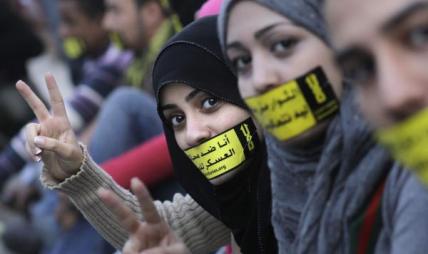NEW YORK: Elites are under siege in every corner of the world. “Tea Party” activists in exurban America rant and rage against the so-called liberal elites of New York, Washington, and Hollywood. In Europe, populist demagogues, such as Geert Wilders in the Netherlands, rant and rage against the elitist “appeasers” of Islam. In Thailand, red-shirted demonstrators from the country’s rural northeast rant and rage against the military, social, and political elites of Bangkok.
The first principle of democracy is that government must be based on popular consent, even if the government is made up of parties for which many people did not vote. It is clear from the worldwide rage against elected governments that this consent is becoming dangerously threadbare. More and more people in democratic countries feel unrepresented, anxious, and angry. And they blame the elites.
The phenomenon is worldwide, but its causes differ from country to country. American populism is not the same as Thai populism. Culture and race play important roles in the United States — the culture of carrying guns, for example, and the discomfort at having a black, Harvard-educated president who talks like a law professor.
In Thailand, the rage stems from the perceived neglect of the rural poor by the ruling class, backed by big business, the army, and the king. The populist billionaire and former Prime Minister, Thaksin Shinawatra, appeared to be different. He used some of his vast wealth to shower money on rural areas. Rural people, grateful for his largesse, voted for him twice.
Authoritarian, crude, and somewhat megalomaniacal (almost as though he were a king himself), Thaksin was a Thai version of Silvio Berlusconi. He was removed from office in 2006, following a bloodless military coup that was supported by the Bangkok middle class, whose members took to the streets in yellow T-shirts (the color of the Thai monarchy). Today’s ongoing pro-Thaksin red-shirt rebellion is a form of revenge.
In Europe, the power of the European Union, often-uncontrolled immigration, and economic globalization are challenging feelings of national belonging, of being represented by national governments, or of sharing national cultures. Demagogues who denounce multiculturalism and warn of the “Islamization” of the West are exploiting the resultant fears about the loss of national identity.
The sense that globalization is creating new classes of haves and have-nots is a factor that inflames most current forms of populism, regardless of national differences. At the same time, new technology, without which globalization would not be possible, is being used to mobilize people for populist causes, too.
The heroine of the US Tea Party movement, Sarah Palin, is as much a creature of twittering and the vast new blogosphere as she is of television and radio — perhaps more so. Indeed, the shift of public debate from the mainstream press to the Internet has helped to break down the authority of traditional elites: newspaper editors, political columnists, academics, politicians. In cyberspace, anyone can have his or her say. This is more democratic, no doubt, but it has made it harder for people to sift nonsense from truth, or demagoguery from rational political debate.
The tone of populist movements, whether in Europe, Asia, or the US, would suggest that the elites are too powerful, that they dominate the little people, whose voices are drowned out by the liberals, the multiculturalists, and the city slickers. This is a common form of populist paranoia, promoted in the US by radio talk-show hosts and Fox television, and in Europe by men like Wilders.
To some extent, the elites have themselves to blame. Immigration in Europe has been messy, and those who complained were too quickly dismissed as racists. After endorsing a military coup to get rid of Thaksin, the yellow-shirts of Bangkok can hardly blame the red-shirts for using undemocratic tactics to force the current government to step down. American liberals, too, are often guilty of sneering at the tastes and habits of their provincial countrymen.
There is, however, another way to look at the worldwide surge of populism. The real problem of traditional elites may not be too much power, but too little. The lack of trust in political elites is linked to a suspicion, which is not entirely irrational, that elected governments have little authority. The real power, people suspect, is lodged elsewhere — on Wall Street, in the unelected EU bureaucracy, in the Royal Thai Army and the Royal Palace.
What people crave in uncertain times is strong leadership from charismatic figures who promise to sweep the stables, get rid of corruption, and stand up for the little man against selfish politicians and against foreigners who threaten us with strange habits and religions. Such times are dangerous for democracy, because they endanger popular consent to democratic governments.
To regain respect, our elected politicians will have to show more authority, not less. US President Barack Obama is right to call for more regulation of financial markets. In Europe, either the EU must become more democratic, which will take a long time, or national governments must delegate less to the bureaucrats in Brussels.
Thailand might face the hardest problems. Reliance on a self-promoting tycoon like Thaksin is not the best way to boost democracy, but nor is reliance on military coups and kingly intervention. Most Thais would agree about the military. And it is illegal to even begin to discuss the role of the king. But without discussion, democracy is surely doomed.
Ian Buruma is Professor of Democracy and Human Rights at Bard College. His latest book is Taming the Gods: Religion and Democracy on Three Continents. This commentary is published by DAILY NEWS EGYPT in collaboration with Project Syndicate (www.project-syndicate.org).

